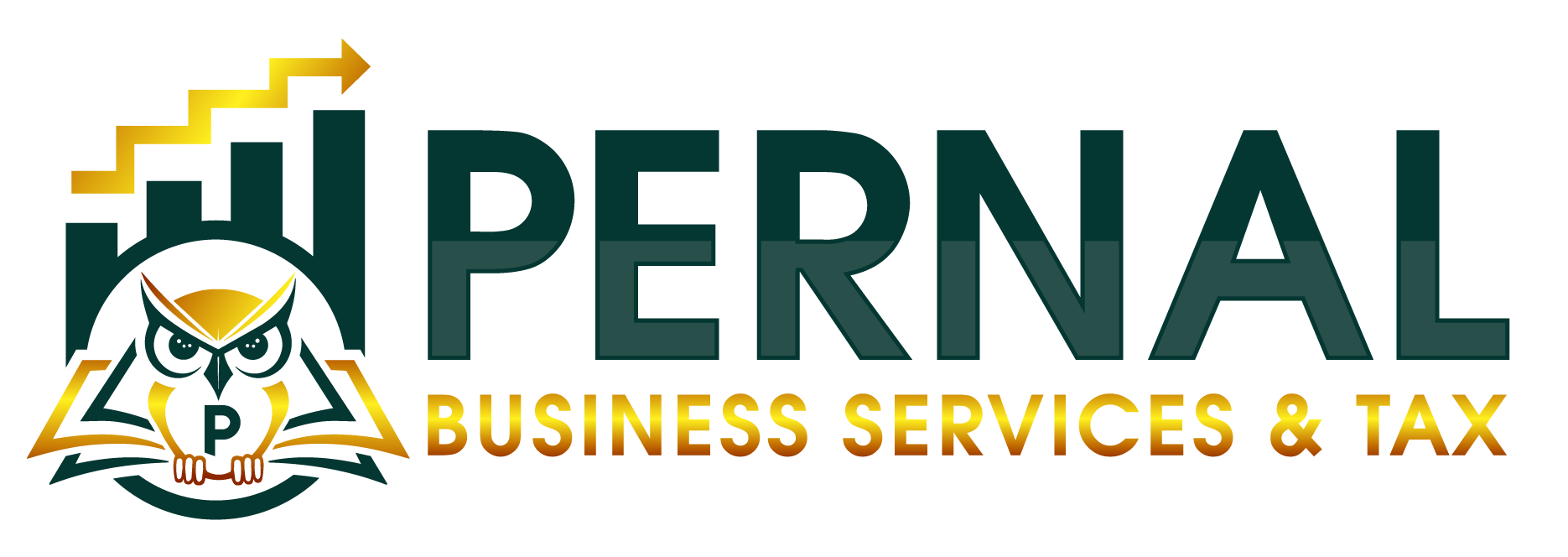Pernal Business Services and Tax
FAQ's
Home > FAQ’s
faq's
frequently asked question
What is the deadline for filing my tax return?
The deadline for filing your federal tax return is typically April 15th. If this falls on a weekend or holiday, it may be extended to the next business day.
What deductions can I claim as a business owner?
As a business owner, you can typically deduct operating expenses, salaries, rent, supplies, and more. Consult with a tax professional to ensure you’re maximizing your eligible deductions.
How do I know if I need to file estimated taxes?
If you’re self-employed or have income not subject to withholding, you may need to pay estimated quarterly taxes. If you expect to owe $1,000 or more, estimated payments are usually required.
What tax credits are available for small businesses?
Small businesses may be eligible for various tax credits, such as the Research and Development (R&D) Credit or the Work Opportunity Tax Credit (WOTC). Speak with a tax advisor for guidance.
What should I do if I missed the tax filing deadline?
If you miss the filing deadline, it’s important to file as soon as possible to minimize penalties and interest. You may also be eligible for an extension, but filing late could still incur fees.
What are the tax filing requirements for sole proprietors?
Sole proprietors are required to report their business income and expenses on Schedule C attached to their individual tax return (Form 1040). You must also pay self-employment taxes on your net income, using Schedule SE.
How do I know if my business qualifies for the Small Business Tax Credit?
Small businesses may qualify for various tax credits, including the Small Business Health Care Tax Credit. To qualify, your business must have fewer than 25 full-time employees, offer health insurance, and meet certain income thresholds. A tax professional can help determine eligibility.
What records should I keep for tax purposes?
For tax purposes, businesses should maintain records of all income, expenses, and supporting documentation (receipts, invoices, bank statements). The IRS typically recommends keeping records for at least three years from the date you file your return.
Can I deduct home office expenses on my taxes?
Yes, if you use part of your home exclusively and regularly for business purposes, you may qualify for the home office deduction. You can deduct a portion of your mortgage, utilities, and other home expenses proportional to the space used for business.
How can I reduce my tax liability as a small business owner?
To reduce your tax liability, you can explore deductions such as business expenses (office supplies, travel, etc.), retirement contributions, and the Section 179 deduction for equipment purchases. Working with a tax professional ensures you maximize available deductions and credits.
Your partner comprehensive tax solutions.
Ut mattis ex non viverra aliquam. Morbi ut arcu leo. Praesent imperdiet vel sapien ut congue. Phasellus at dapibus ligula. Proin molestie viverra magna non viverra. Praesent quis turpis nisl.
